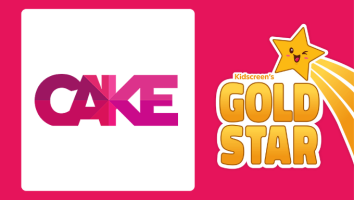As the majority of the world’s theaters remain closed indefinitely to help reduce the spread of COVID-19, indie filmmakers are facing a new set of distribution challenges to compete with franchise-driven Hollywood studios.
Dozens of blockbusters have been postponed, including Disney’s Mulan remake (pushed back from March 27) and Black Widow (originally May 1), while potential delays for Pixar’s Soul (June 19) and Dwayne “The Rock” Johnson’s Disney adventure Jungle Cruise (July 24) spell bad news for original independent kids films looking for coveted slots in the fall and winter release schedules—already a difficult period to break into.
The upcoming logjam of major releases has forced Brazilian prodco PenGuin Content (Earth to Luna) and its local distributor H2O to postpone the Brazil premiere of PenGuin’s new animated family feature Tarsilinha from September, to a yet-to-be-determined date in 2021.
Theater debuts still too big to pass up
Eight years in the making, Tarsilinha (pictured) tells the story of an eight-year-old girl who embarks on an adventure to save her mother’s memories. Directed and produced by PenGuin co-founders Celia Catunda and Kiko Mistrorigo, the movie features concept art based on the paintings of Tarsila do Amaral, a leading modernist artist in Brazil and Latin America.
For Catunda, the decision to delay was not an easy one. “It’s hard enough for Brazilian indies to find release dates, when the major foreign studios fill most of the slots,” says Catunda. “Now, we’re at a greater disadvantage because when the theaters re-open, they’ll need to accommodate all of the big releases, which generate higher profits.”
Tarsilinha‘s deferral has also had a knock-on effect on PenGuin’s licensing and merchandising plans for the film. The São Paulo-based company had to rescind a direct-to-retail licensee for apparel, as well as suspend additional L&M negotiations that were already in progress.
“It’s very hard for a small company like us in terms of the losses we will have, but we are preparing for those,” says Catunda.
PenGuin doesn’t want to go direct-to-digital (like Universal Pictures’ new day-and-date plan for features like Trolls 2) either because the potential for a strong theatrical debut in Brazil is too important to miss, Catunda says.
“We’ve sacrificed a lot to get to [launching on the big screen], so we opted against a digital premiere,” she says. “It would also be very hard for us to introduce an original animated film into the digital space right now and be able to market it properly and cut through.”
(According to Nielsen, video streaming to TVs skyrocketed 85% in the US in the first three weeks of March with Netflix, YouTube and other platforms, including Disney+ leading the way in total streaming minutes.)
As for Tarsilinha‘s global strategy, PenGuin is in discussions with a few international distributors, but hasn’t closed a deal yet. It also planned to hit as many festivals as it could after September, but depending on the duration of the pandemic, the company may have to explore virtual fests instead. (Germany’s children’s TV festival Prix Jeunesse is the latest to go digital due to COVID-19.)
Despite the challenges, Catunda says the silver lining of the delay is it affords the company extra time to improve some elements of post-production and the score of the film, plus work on new development projects. “You can always make things better,” she says.
Leaning on investors
While theater closures have greatly impacted PenGuin’s film distribution strategy, Brisbane, Australia-based Like A Photon Creative (Bear and Salmon) is in a more stable situation in terms of rolling out its Tales from Sanctuary City trilogy of animated kids features.
“Because we have private investors, whenever we forecast any kind of income, we don’t lean heavily on risky box office money in terms of our cash flow projection,” says co-founder Nadine Bates. “We’ve been incredibly conservative with the box office projections of our films.”
In addition, each movie costs between US$2 million and US$3 million, so the recoup costs to break even at the box office are quite low.
The trilogy’s first 3D-animated film, The Wishmas Tree, already launched theatrically in Australia, New Zealand and Ukraine in February, grossing US$42,546 to date, according to IMDB. Combat Wombat and Daisy Quokka, meanwhile, are set to be delivered by April 30 and October 30, respectively. It’s unclear if the trilogy’s global distributor, Odin’s Eye Animation, is planning to take Wishmas Tree to digital platforms while theaters are closed.
Odin’s Eye hasn’t issued a release schedule for the sequels yet, but Bates expects they will launch in late 2020 and early 2021. She does note that new international theatrical growth for Wishmas Tree is unknown at this time, but Like A Photon did secure a significant amount of pre-sales for the film to put money in the bank.
It also won’t wait for the box office to re-open when it comes time to release the trilogy’s sequels, whether on TV or digital platforms. “We’re able to be incredibly flexible and pivot because we aren’t waiting on box office for those projects.”
She says theater closures will be felt the most in territories where distributors can’t get the kind of money they need out of premium and subscription VOD platforms. “One of the biggest challenges over the next six months will be staying ahead of the game in terms of who’s paying what for PVOD [premium video on demand] and SVOD,” says Bates. In this scenario, if SVOD deals don’t work out, and theaters are still closed, it’s one less revenue stream for producers.
She says Like A Photon’s first priority around distribution is to deliver the content it promised to deliver no matter how long the pandemic lasts. A big reason for her confidence is the fact that new COO Rachel Bauer prepped for potential disaster scenarios when she joined the company last July.
“[Bauer] went through our pipeline and made sure that if a disaster happened, we would all be able to work at the productivity level we’re now working at, from home,” says Bates. “We’re actually in a position to function in this new content economy pretty well. There will be some damage along the way, but it absolutely won’t sink us.”





























